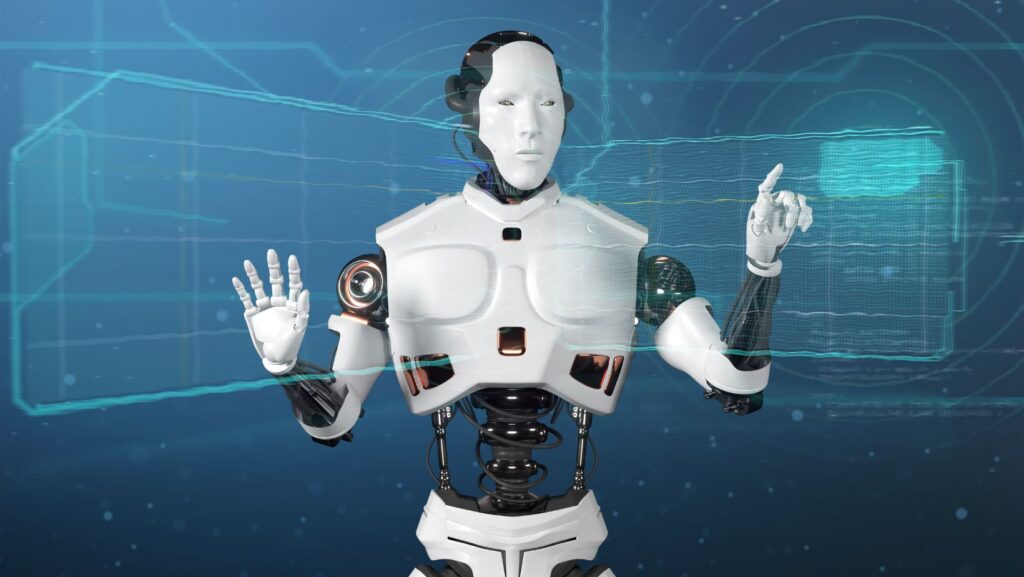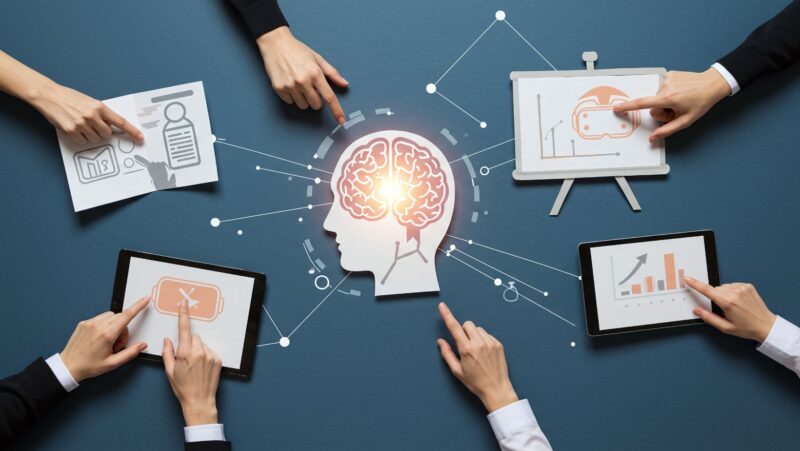
The Rise of AI and Robotics in Scientific Research
The landscape of scientific research is undergoing a profound transformation, driven by advances in artificial intelligence (AI) and robotics. In laboratories around the world, automation is no longer a futuristic concept but a present reality, enhancing efficiency, accuracy, and productivity. As researchers face growing demands for faster and more precise results, AI and robotics are proving to be indispensable tools that redefine how experiments are conducted, data is analyzed, and scientific discoveries are made.
AI-Powered Data Analysis and Experimentation
One of the most significant contributions of AI in laboratory automation is its ability to process and analyze vast amounts of data at speeds no human could match. AI algorithms can identify patterns, detect anomalies, and generate insights that might otherwise take months or even years for researchers to uncover. Machine learning models, trained on extensive datasets, can predict experimental outcomes, optimize processes, and even suggest new hypotheses.
In drug discovery, for instance, AI-driven platforms can analyze molecular structures and predict potential interactions with unprecedented accuracy. This accelerates the identification of viable drug candidates, reducing the time required to bring new treatments to market. Similarly, in genomics, AI tools can sift through genetic data to pinpoint mutations associated with diseases, paving the way for personalized medicine and targeted therapies.
Robotics and the Evolution of Laboratory Workflows
Alongside AI, robotics is playing a crucial role in transforming laboratory workflows. Automated robotic systems can handle repetitive and time-consuming tasks such as sample preparation, liquid handling, and high-throughput screening. These machines operate with remarkable precision, minimizing human error and ensuring consistent results.
With the integration of robotic arms, automated pipetting systems, and smart incubators, researchers can focus more on the intellectual aspects of their work rather than mundane, labor-intensive tasks. For example, robotic systems equipped with AI vision technology can monitor cell cultures, adjusting conditions in real-time to ensure optimal growth. This level of automation not only enhances accuracy but also significantly speeds up experimental processes.
Enhancing Reproducibility and Standardization
Reproducibility has long been a challenge in scientific research. Variability in experimental conditions, human handling errors, and subjective interpretation of results can lead to inconsistencies in findings. AI and robotics address this issue by ensuring that experiments are conducted under precisely controlled conditions, following standardized protocols with minimal deviation.

Automated systems can replicate experiments with exacting precision, allowing researchers to validate results with greater confidence. This is particularly crucial in fields such as biomedical research and pharmaceutical development, where the reliability of experimental data directly impacts patient outcomes.
To discover more about the cutting-edge technologies shaping the future of laboratory automation, discover more here.
Integration with the Internet of Things (IoT) and Cloud Computing
The convergence of AI, robotics, and the Internet of Things (IoT) is further revolutionizing laboratory automation. IoT-enabled devices can communicate with each other, collecting real-time data and making adjustments as needed. Cloud-based platforms allow researchers to access and analyze data remotely, facilitating collaboration across institutions and geographical boundaries.
For example, an AI-driven robotic system in a research lab can autonomously conduct experiments overnight, sending results to a cloud server where scientists can review and interpret them the next morning. This seamless integration of automation, connectivity, and remote accessibility is transforming how research is conducted, enabling scientists to work more efficiently and collaboratively.
Overcoming Challenges and Ethical Considerations
Despite the numerous advantages of AI and robotics in laboratory automation, challenges remain. The initial investment in automation technologies can be significant, posing a barrier for smaller research institutions and startups. Additionally, integrating AI-driven systems requires technical expertise, and there is a learning curve for researchers transitioning from traditional methods to automated workflows.
Ethical considerations also come into play, particularly concerning data privacy and the potential displacement of human workers. As automation becomes more prevalent, ensuring that scientists and laboratory technicians are upskilled and adapted to new roles will be essential. AI should be seen as an augmentation tool rather than a replacement for human expertise.
Looking Ahead: The Future of Laboratory Automation
The realm of laboratory automation is on the cusp of a profound transformation, driven by rapid advancements in artificial intelligence and robotics. As these technologies evolve, laboratories are set to transition from traditional, labor-intensive operations to dynamic, fully integrated systems that can perform complex tasks with remarkable precision and speed.
Emerging innovations—such as autonomous mobile robots that navigate busy lab environments, AI-powered diagnostic tools that analyze intricate data sets, and self-learning systems that adapt to experimental feedback in real time—are poised to revolutionize how research is conducted. These technologies promise to streamline every aspect of laboratory work, from sample handling and data collection to the nuanced adjustments of experimental protocols. In the near future, many routine tasks may be entirely automated, freeing researchers to focus on creativity and interpretation rather than manual processes.
Furthermore, the integration of advanced sensors and machine learning algorithms into laboratory equipment is set to usher in an era of self-regulating and adaptive systems. Imagine a laboratory where conditions are continuously monitored, experiments are adjusted on-the-fly, and potential errors are anticipated and corrected automatically—all with minimal human intervention. Such capabilities will not only enhance precision and reproducibility but will also enable laboratories to operate around the clock, thereby accelerating the pace of discovery.

Adopting AI-driven automation early on will be crucial for laboratories and research institutions aiming to stay ahead in this evolving landscape. Early adopters will likely enjoy a competitive advantage characterized by increased speed, enhanced accuracy, and the scalability to handle more complex and larger volumes of experiments. This technological leap is not confined to traditional fields of research; its implications stretch across diverse areas including healthcare, where rapid diagnostics and personalized treatment strategies are emerging, environmental science with its need for continuous monitoring and swift data interpretation, and even space exploration, where autonomous laboratories could operate in remote or extreme environments.
Ultimately, AI and robotics have evolved from being mere conveniences into powerful catalysts for groundbreaking discoveries. Their integration into laboratory operations is transforming the scientific method itself, creating opportunities for more dynamic, responsive, and innovative research. This transformative journey is set to redefine how scientific inquiry is conducted, opening up new frontiers of knowledge that will shape our understanding of the world for generations to come.







